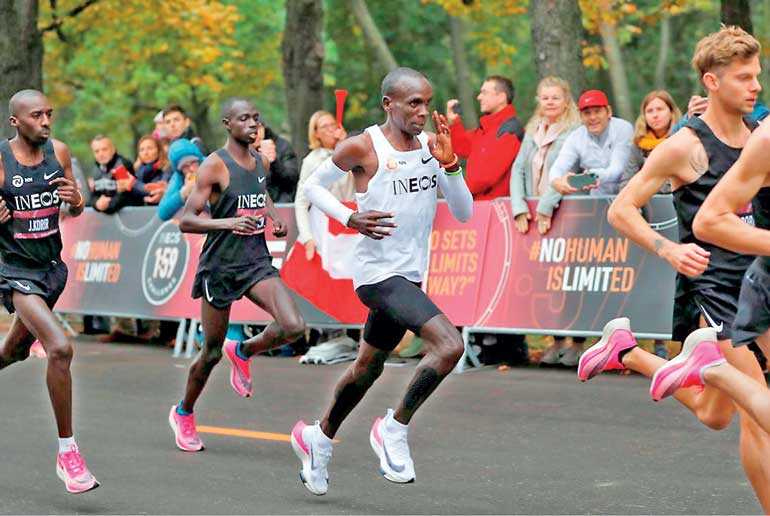Wednesday Feb 25, 2026
Wednesday Feb 25, 2026
Friday, 7 February 2020 00:00 - - {{hitsCtrl.values.hits}}

London (Reuters): Nike has launched a new running shoe that complies with limits set by World Athletics after the governing body imposed a landmark ban on a version of the sportswear giant’s Vaporfly shoes that was used to run the first sub-two hour marathon.
The first-ever shoe ban by World Athletics (WA) last week addressed concerns that technology advances are giving athletes an unfair and unnatural advantage, described by some critics as “technological doping”.
New rules state road shoes must have soles no thicker than 40mm and not contain more than one rigid, embedded carbon fibre plate, and limit the use of some track spikes on the Vaporfly models, but permit the continued use of most of the range.
Nike has now duly launched the latest incarnation of the shoe - the Air Zoom Alphafly Next - with one carbon plate and a sole thickness of 39.5mm, as well as newly added air pockets.
“We are pleased the Nike Zoom Vaporfly series and Nike Zoom Alphafly NEXT% remain legal,” said the US company. “We will continue our dialogue with World Athletics and the industry on new standards.”
The Vaporfly controversy has ignited a wider sporting debate: where should the line be drawn between advances in sports technology and equipment giving competitors an unfair advantage, be it running shoes, soccer boots or tennis rackets?
Nike has always said it operates within the rules, while exploring the possibilities provided by new technology. Its Vaporfly shoes have led to a slew of world records since their introduction in 2016 but WA ruled last week that most of the versions used for those records, and by thousands of amateur runners, would remain legal.
Kenyan runner Eliud Kipchoge used a version of the Vaporfly now deemed illegal for his unofficial sub-two hour marathon in October, a model reportedly with extra-thick soles and three carbon plates. He is expected to use the Alphafly in his London marathon showdown with Ethiopian rival Kenenisa Bekele in April’s London Marathon.
After launching the new shoe on Wednesday, Nike CEO John Donahoe said it did not give athletes a “mechanical advantage”.
“It’s simply using the same materials that go into a shoe and putting them together in an innovative way that allows the athlete to do their very best in a safe way,” Donahoe said in an interview with CNBC.
A Wall Street Journal report said limited numbers of the new Alphafly shoes will be made available to the public online this month, thereby meeting one of WA’s eligibility requirements for the shoe to be used at this year’s Tokyo Olympics.